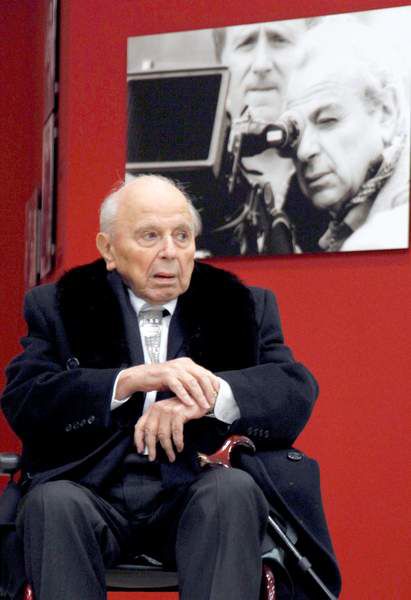Michael Cacoyannis, 90, made ‘Zorba the Greek’
Published 5:00 am Thursday, July 28, 2011

- Cyprus-born filmmaker Michael Cacoyannis attends an event in Athens in 2010. Cacoyannis, who directed the 1964 movie “Zorba the Greek,” starring Anthony Quinn, died Monday. He was 89.
Michael Cacoyannis, a Greek filmmaker whose art-house films and adaptations of Euripides for stage and screen were critically acclaimed, but who was best known as the director of the 1964 Hollywood hit “Zorba the Greek,” died Monday in Athens. He was 90.
His death was confirmed by the Michael Cacoyannis Foundation, an institution for the performing arts he founded in 2003.
Trending
Cacoyannis’ early work brought a new level of respect to Greek filmmaking in the 1950s, when postwar European cinema was dominated by the Italians and French. It also gave exposure to some of Greece’s finest performers. His 1955 film, “Stella,” which won the Golden Globe as best foreign film, featured Melina Mercouri in her first movie role. Irene Papas would appear in many of his productions.
But “Zorba,” his eighth film, created a cultural phenomenon that transcended filmmaking.
Anthony Quinn’s barefooted, dancing, woman-loving Zorba became a symbol of Greek vitality that boosted Greek tourism for decades. For better and worse, it also stamped the Greeks as people with a knack for living for the moment, a characterization that has haunted them during the country’s national debt crisis.
The film won three Academy Awards. But although nominated for best director and best film, Cacoyannis and “Zorba” lost out to George Cukor’s adaptation of “My Fair Lady.”
Cacoyannis discovered theater while he was a student in London, where his well-off family sent him to study law before the start of World War II. He received a law degree, but never practiced. Instead, he enrolled in acting classes and appeared in stage roles before going to Greece in 1953 to make films.
His first four films were well received on the international art-house circuit: “Windfall in Athens” (1954), “Stella” (1955), “A Girl in Black” (1956) and “A Matter of Dignity” (1958). “Electra” (1961), which made Papas a star, was called one of the 10 best films of the year by Bosley Crowther, the film critic of The New York Times.
Trending
A devotion to classical Greek drama prompted Cacoyannis to film and stage a number of plays by Euripides and Aristophanes, beginning in 1963 with a stage production in New York of “The Trojan Women,” Euripides’ antiwar play. During tryouts Cacoyannis was said to have despaired at some of the candidates as he tried to convey to them the depth of the tragedy.
“Imagine that your president has just been assassinated, and his son is being dragged off to be killed,” he suggested. The cast in place, rehearsals began Nov. 22, 1963, the day President John F. Kennedy was shot. The production ran for 600 performances before closing in May 1965.
Mihalis Kakogiannis was born June 11, 1922, in Limassol, Cyprus. (He later adopted a phonetically simpler spelling of his last name.) He was one of four children. His father, Panayotis, a lawyer and member of the island’s legislative and executive councils, was knighted by the British government in 1936.








